If I didn’t already know that No Straight Roads was a passion project, I’d have suspected as much. Some games feel that way from the start, almost overstuffed with inspirations, homages, and shout-outs to everything that the developers love. Whatever else you can say about NSR, it’s got a lot of heart, and that’s always going to count for something.
It doesn’t quite come all the way together, though. No Straight Roads has killer visuals, an amazing soundtrack, and a likable cast, but the parts of it that you play range from acceptable to counterintuitive. It’s never exactly bad, but it’s a lot more interested in being an audiovisual experience than anything else, with rough combat and a few bugs. NSR is well worth taking the trip, but it’s A+ art and music wrapped around a C+ game.
No Straight Roads Review: A Flawed But Likable Rock Opera
No Straight Roads is set up to play out like a list of tracks on a concept album. You play as Mayday and Zuke, the last two rock musicians in Vinyl City (which, to go by Mayday’s slang, is near-future cyberpunk Malaysia), as they set out to literally fight their way up the charts and overthrow the electronic dance artists who dominate the scene.
In Vinyl City, music is both its primary industry and its power source, but the corporation that runs the place, NSR, is visibly manipulating the population, unevenly distributing electricity between neighborhoods, and worst of all, boosting EDM at the expense of rock.
Mayday and Zuke’s attempts to mount a revolution are about half wreaking terrible revenge on behalf of their music genre, and half an effort to overthrow NSR because it’s unfair and obnoxious. To do so, they force their way into the top five performers’ concerts and hijack them in a high-concept battle of the bands, mounting a sort of guerilla campaign of underground popularity.
This may be the first high-tech dystopia I’ve ever seen in any work across all of media where its leaders aren’t comically evil; they just have bad taste in music, and they’re petty assholes. Their idea of fighting back is to dig up Zuke’s perma-stoned older brother and send him out to rap battle you, which is delivered in the same kind of cutscene that any other game would use to introduce a hired assassin. The stakes are pretty low here, is what I’m saying.
That’s part of the game’s charm. Vinyl City’s got a real sense of place, although you don’t see much of it, and the game’s very good at making it feel like it’s got some real history. It’s got style to spare, and I’d be genuinely interested in seeing more from this weird universe.
The music is the focus, though, and it’s arguably to the detriment of everything else. This is the only game I’m aware of where its designers made the soundtrack first, and then created the game’s levels to match it. Enemies attack and obstacles move in rhythm with the music, and the more you can match that rhythm, the better you’ll do.
When it works, NSR really works. It can take a second to figure out what the game is actually asking you to do in any given encounter, particularly when you reach one of the big, multi-stage boss fights. Each one has its gimmicks, some of which are wholly unique to that encounter, and which aren’t often explained. It just trusts you to figure it out on the fly.
Once you unlock the double-jump and air dash, which takes a relatively short amount of time, things start to flow together. At its best, NSR is like a big, well-produced music video, with fights that feel more like dancing than anything else.
It’s buggy, though, and many of its ideas seem half-baked. The combat system could use another coat of paint, as it seems to want to be a brawler in the spirit of Devil May Cry, but there’s never really anything that you can just run up to and hit. Standard enemies will usually punch you out of even a fast combo string, and bosses are rarely vulnerable to actual melee hits.
You’ve got a bunch of consumables and skills that are meant to enhance your combo potential, and they’re all effectively useless. It’s a bunch of mechanics kind of spot-welded together from a bunch of other games, and it never quite feels like a cohesive whole.
I’ve also run into a lot of bugs and incidental strangeness on my trips through the city. In single-player mode, you control either Mayday or Zuke and can switch between them with the tap of a button, with the inactive character following behind you as an invincible buddy. However, that buddy can clip through the level geometry while you aren’t looking, which can soft-lock the game if you switch at the wrong time. I had to redo an entire boss fight because I switched to Mayday to regain health, and she was inexplicably standing outside the arena, unable to get back in.
It’s bizarre. I’ve played outright bad games, and No Straight Roads isn’t that. It’s a thoughtfully made, lovingly crafted experience with style, humor, and color to spare. It’s just that all the parts of it that make it a video game are weirdly underthought. The city’s beautiful, but you can’t reach more than a fraction of it; the action looks great, but doesn’t control well; the boss fights are massive and ambitious, but uneven, with a bunch of empty filler leading up to them.
No Straight Roads Review — The Bottom Line
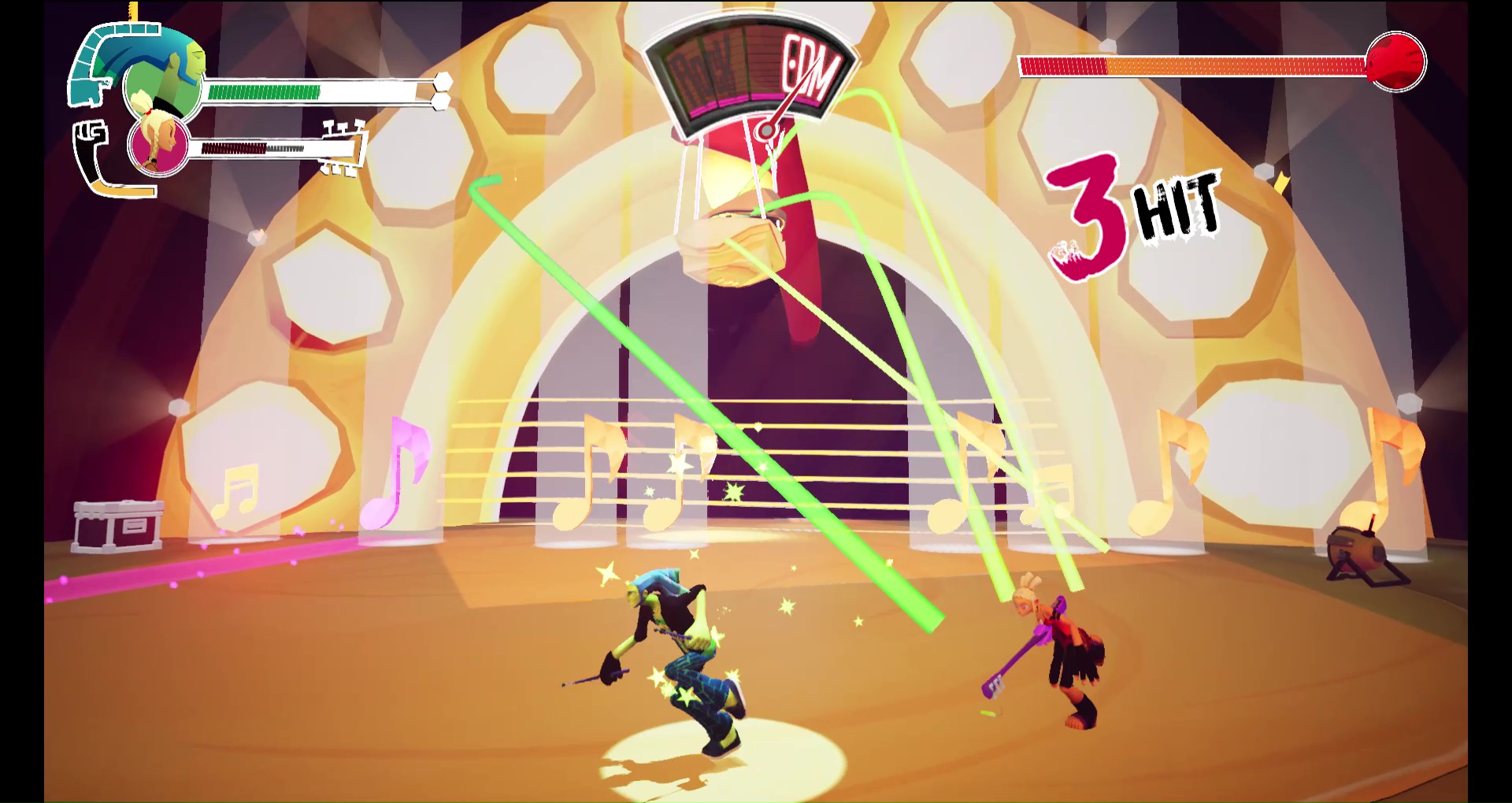
Pros:
-
A unique aesthetic
-
Much of the music is great; the tracks that aren’t, aren’t supposed to be
-
Goofy, likable characters
Cons:
-
Could’ve used another month or two for bug fixing
-
Mechanics aren’t always obvious, particularly in boss fights
-
Messy, unsatisfying combat, which makes up most of the interactive portion of the game
Despite my criticisms, I want to be clear: No Straight Roads is well worth checking out. The music is great, the world feels lived-in for as silly as it is, and the character design and art are both top-notch. I feel like this could be a foundational experience for any artists or musicians who happen across it, the same way Jet Grind Radio was back in the 2000s.
The quality of the animation does not come across at all in static screens; you’ve gotta see this in motion to appreciate it. It’s particularly cool that the game is so firmly Malaysian, with many characters using “Manglish” phrases. (Errata: I initially, erroneously, confused some of the dialect with “Singlish,” which also uses “issit” a lot. My mistake.)
It’s flawed, but in an interesting way, and that’s valuable. This isn’t some market-tested focus-grouped vanilla milkshake of a game that’s aimed directly at the lowest common denominator or some indie project that blew up on the runway. Instead, No Straight Roads‘ chief problem is that it’s so busy being an animated cyberpunk comedy/rock opera that it’s not a particularly satisfying video game, and that’s actually fascinating.
It’s also difficult to score. Call it a 7 overall, but it really is a must-play.
[Note: Metronomik provided the copy of No Straight Roads used for this review.]

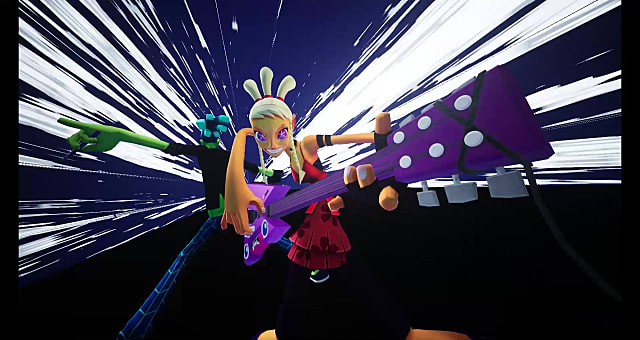
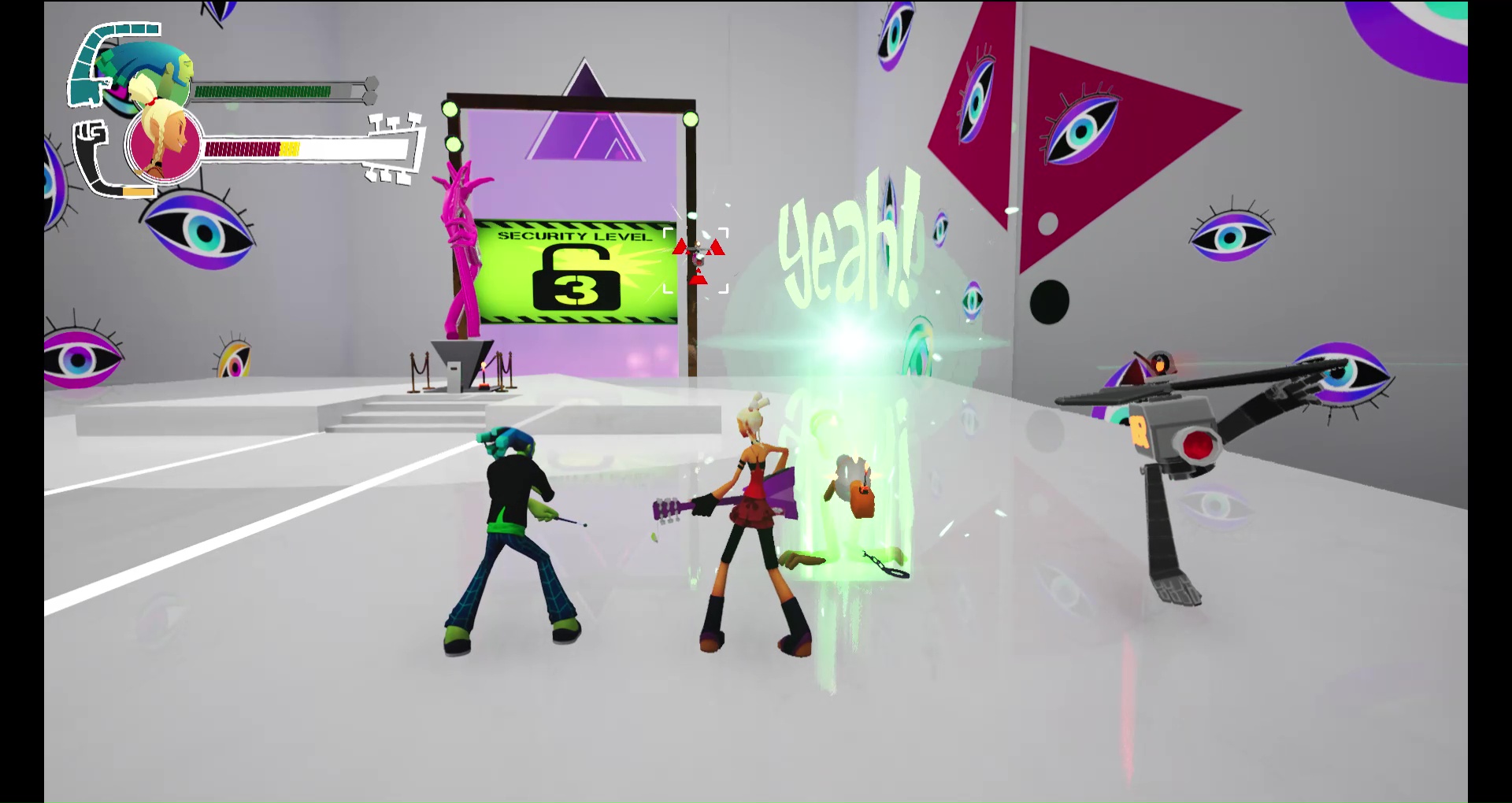
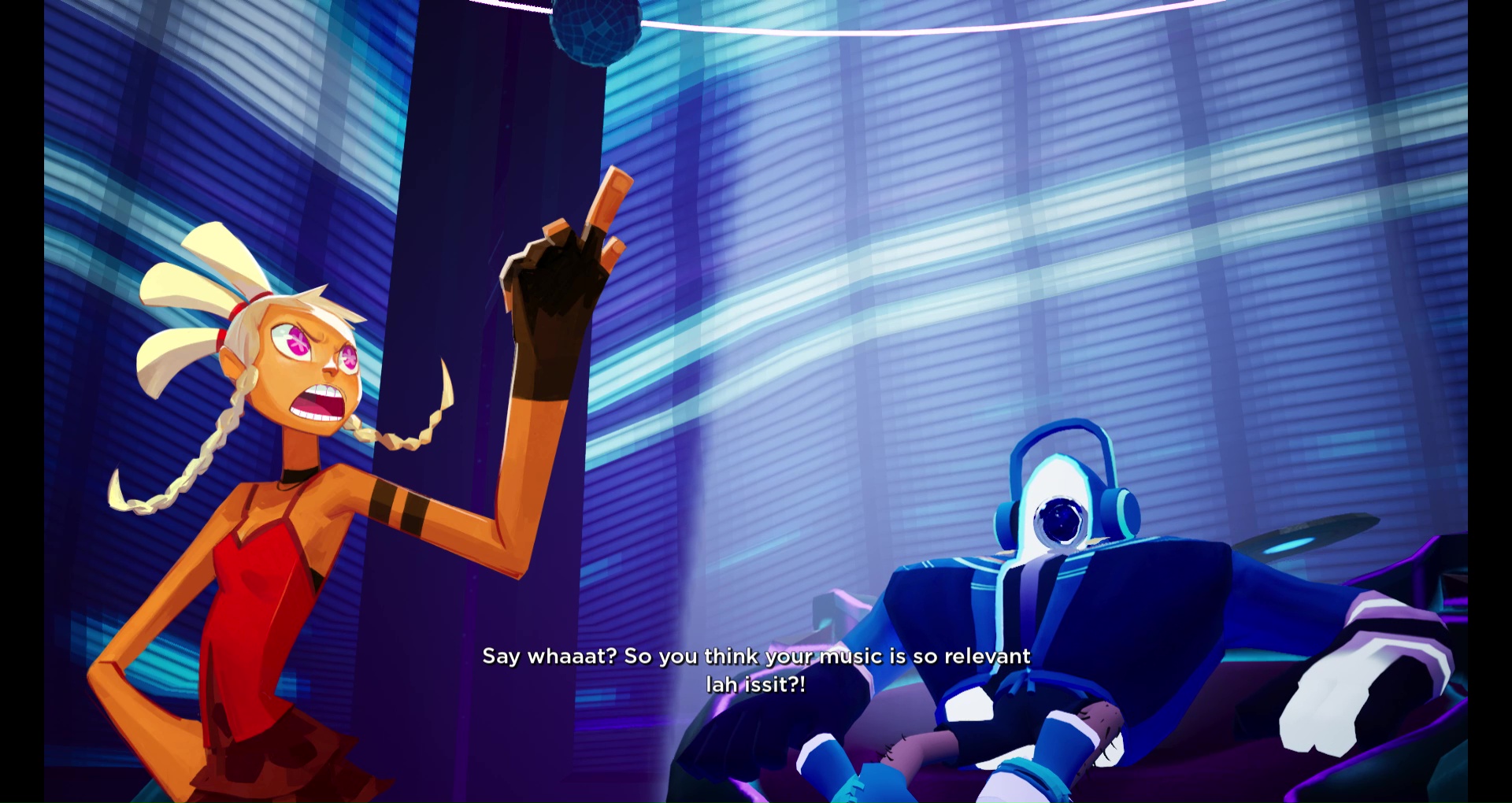
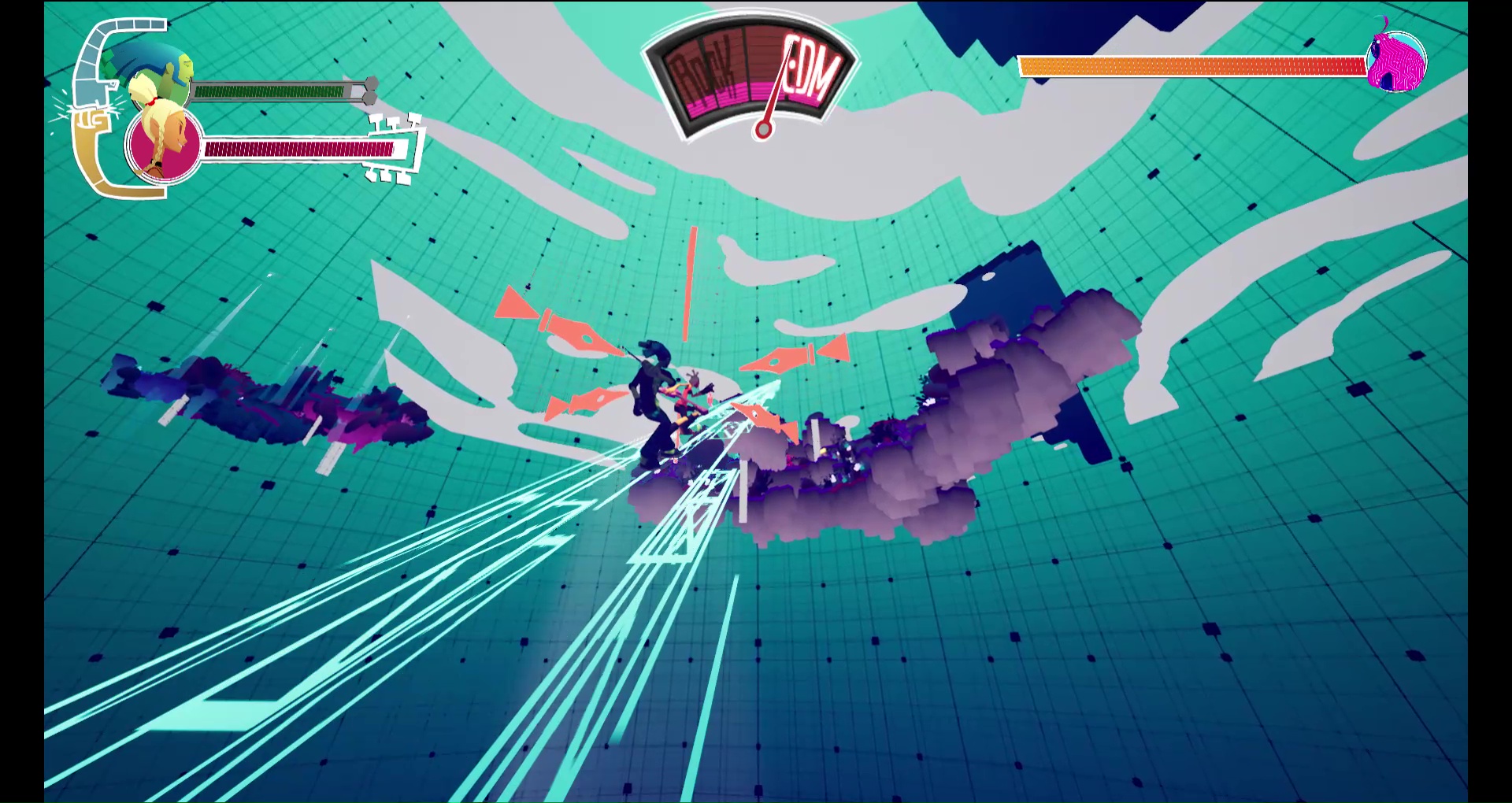





Published: Aug 31, 2020 06:57 am